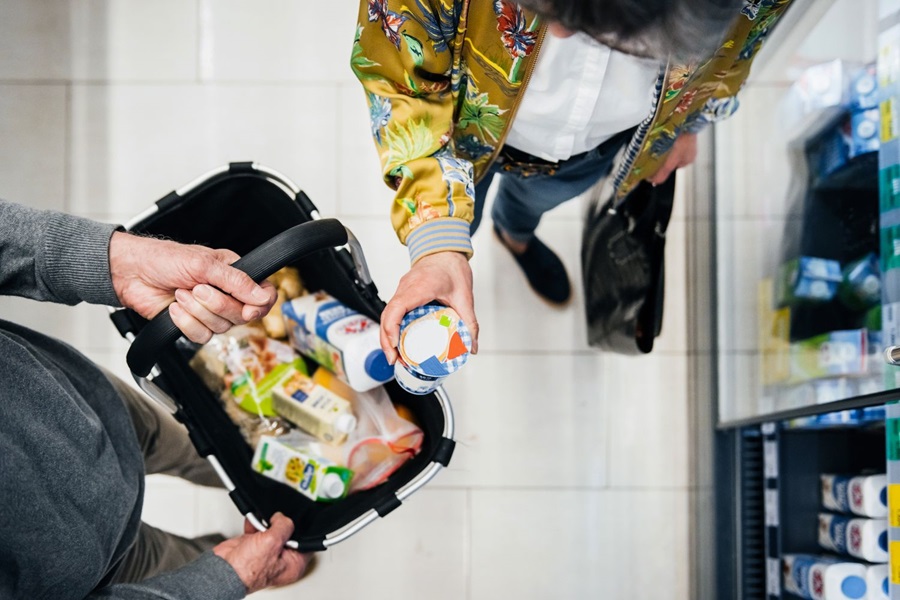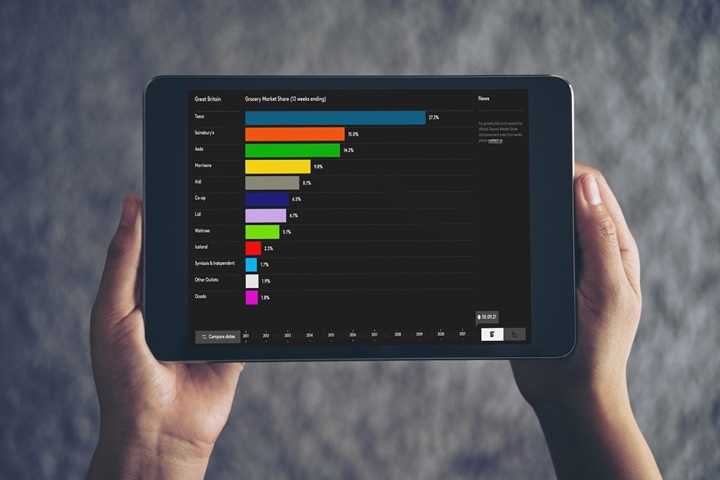The latest figures from Kantar show that take-home grocery sales in Ireland grew by 16.3% in the 12 weeks to 21 February 2021. Growth was even stronger during the past month at 17.7%, the highest level since November 2020, as shoppers spent an additional €151.1 million.
As we approach a full year since the first national lockdown in Ireland, we can see how the months of restaurant and bar closures, working from home and home schooling have added up. All those extra meals and snacks at home have led to an extra €2 billion spent on take-home groceries, including Irish shoppers splashing out €7.6 million on tea and €19.5 million on instant coffee to get their fix at home. Totting it all up, the average household grocery bill has increased by €1,000 this year.
Personal care sales hit by social distancing
We are saving some pennies on our grooming routines and healthcare though. With social distancing and limits on gatherings continuing, sales of shampoo were down 0.8% and conditioner 2.7% in the past 12 weeks and deodorant down 5.4%. Staying at home more and an emphasis on handwashing has also meant a steep decline in sales of cold and flu remedies – with cold treatments dropping 55%, cough liquids 60% and lozenges 42%. Of course, liquid soap continues to be an exception in these aisles, and sales were up 99.5% in the most recent 12 weeks.
February brought Valentines’ Day and Shrove Tuesday, and consumers continued to make the most of events they could safely celebrate at home in lockdown. They spent an additional €3.2 million on boxed chocolates to treat their loved ones in the past 12 weeks and sales of flour, eggs and syrup grew by 56%, 21% and 14.0% respectively as Pancake Day provided entertainment for all ages.
Online grocery sales had another record-breaking month as shoppers ordered €63 million worth of take-home groceries, accounting for 6.3% of all sales. Online’s share of the grocery market has had an extraordinary uplift compared with the pre-pandemic level of 2.7%. Lockdown may well have converted some previously reluctant digital customers long term – 241,500 people made an order in February, compared with 114,800 last year. They are also using services more often, completing 21.7% more digital orders a month.
A year on from record-breaking sales
As schools begin a phased reopening from the start of March, Irish shoppers are awaiting a timeline for the return of hospitality. Once confirmed, those changes will impact take-home grocery sales in the coming months. The 12-month milestone is significant for retailers as it means we start to compare sales against the record-breaking levels of the start of the pandemic in March 2020, and we will see year-on-year growth decline from next month as a result. Children heading back to school will be welcome news for exhausted parents and will also mean demand for take-home groceries starts to ease, something that will likely accelerate once offices and restaurants return. We’ll see more typical sales patterns remerge and we’ll need to keep an eye on other metrics of performance to gauge how retailers are moving out of lockdown, including market share figures.
SuperValu sits at the top of the table this month as it grew sales by 20.9% to hold a 22.3% share of the market – an increaser of 0.9 percentage points. It was the only retailer to attract new shoppers into its stores and its customers traded up when they were there – spending €70 million more on branded goods than this time last year.
Dunnes increased its sales by 9.7% this period as its customers picked up extra items in store and continued to spend more per buyer than at any other retailer at €618.60. This totalled an additional €62.5 million spent over the 12 weeks.
Lidl was once again the fastest growing retailer at 21.8%, with basket sizes increasing by 14.9% year on year. Aldi customers spent an additional €57.1 million this period, driving 13.4% growth.
Tesco shoppers added an additional 3.6 items to their baskets this period, more than customers at any other retailer, and helped the grocer’s overall sales to rise by 18.0%.


